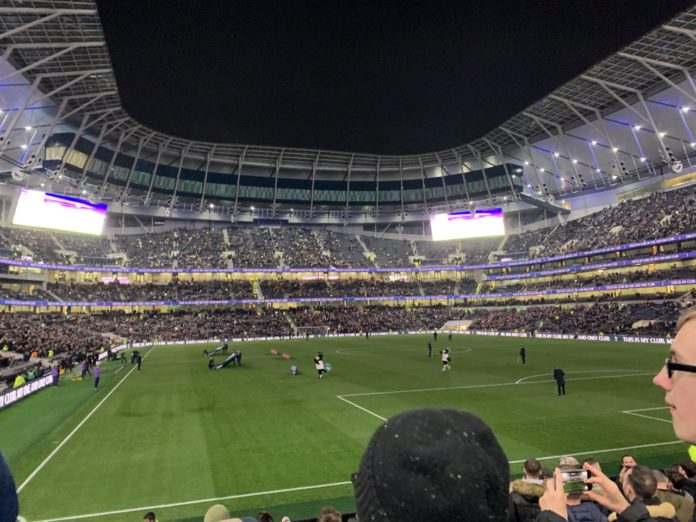Football, for many of us, is way more than ‘just a game’: it’s a way of getting away from day to day troubles. Whether you have an Old Trafford season ticket or turn up to a field to watch non-league, football, for its fans, will always be a means of escape. Mental health is such a big problem in society, and one that still has a stigma around it. Football fans use the Beautiful Game as a means of escape from their daily troubles and issues.
Attending live football is what really does it for me. And it’s not just the players on the pitch. Nothing beats the smell of the burgers and the excited progression to the grounds. Then there’s the smell of the grass, the clattering of seats as people stand in excitement, eventually to sit in glorious buzz or disappointment. It can be summed up as atmosphere. Once taken for granted it can seem now a distant memory.
This season’s matchday commute from bed to chair or sofa fails badly by comparison. There’s no matchday programme to pick up, no fellow fans to moan or grin with.
It’s just you alone with your thoughts – a dangerous thing.
People miss the togetherness that football offers. This can be the same people sitting or standing around you every match or even the pub-based banter with strangers. It’s social lubricant, taking you out of your own head. Arguing about team selection, sloppy defensive performances: even when you’re losing on the pitch you’re winning by being part of something more than yourself. As Jamie Carragher said recently on Monday Night Football, “Football can take you to a place, nothing else can”.
Pre-Covid, I would take every opportunity to travel to a game, whether to my beloved Tottenham Hotspur, my local non-league Cheshunt FC, or as an unattached spectator to see any tow good competitive sides. I just wanted to watch football! In 2019, I saw 59 matches in 17 different grounds, from the Champions League Semi Finals between Tottenham Hotspur and Ajax at the Tottenham Hotspur Stadium, to Cheshunt FC, in the FA Cup Second qualifying round away at Maidstone United.
Ah, the nostalgia.
My last pre-Covid game was 7 March 2020. A school friend, Alex, Bolton Wanderers’ supporter, wanted to see his team up against AFC Wimbledon. Why not? said me, Alex, Luke and Laurie. On the way we get food – it’s our ritual. This time it was a Sainsbury’s meal deal. I know. Eventually we reached Kingsmeadow, south west London for the League One clash. The score, you ask? It was a 0-0 draw. Just my luck. Unluckier still –a year later, I’ve not been in a professional football ground since.
When the news of the suspension in the Premier League season broke, it didn’t really come as a shock, Callum Hudson-Odoi of Chelsea and Mikel Arteta, the Arsenal manager both had contracted COVID 19, two of the highest profile sports people in the English Premier League had put authorities on red alert. As a fan, from my point of view it was a necessary break but I for one, thought we’d be back in soon! Oh, how wrong I was. With news of the first National Lockdown hitting us on the 23rd March 2020, it suddenly dawned on me that, as a fan I wouldn’t be going to watch any football games physically, for the foreseeable future.
With the March national lockdown, it suddenly dawned on me that it may be some time before I would be packed in with others, shouting my lungs out, getting away from it all in search of victory, understanding that – for today at least – my team may even face defeat.
This was a real body blow. I had used football to deal with a tough mental situation. In June 2019, I lost my Nan very suddenly and it raised emotions that I’d never experienced before. I turned to football as my pressure valve, went to games whenever I could, spent hundreds of pounds going to games, just taking in the beautiful game – and its celebration of life – wherever and whenever I could.
But time moves on. The world is looking promising again – we are coming out of it. Finally, football fans can dare to dream of the matchday, the crowds, the glorious release of watching the sport we all love, in person.





